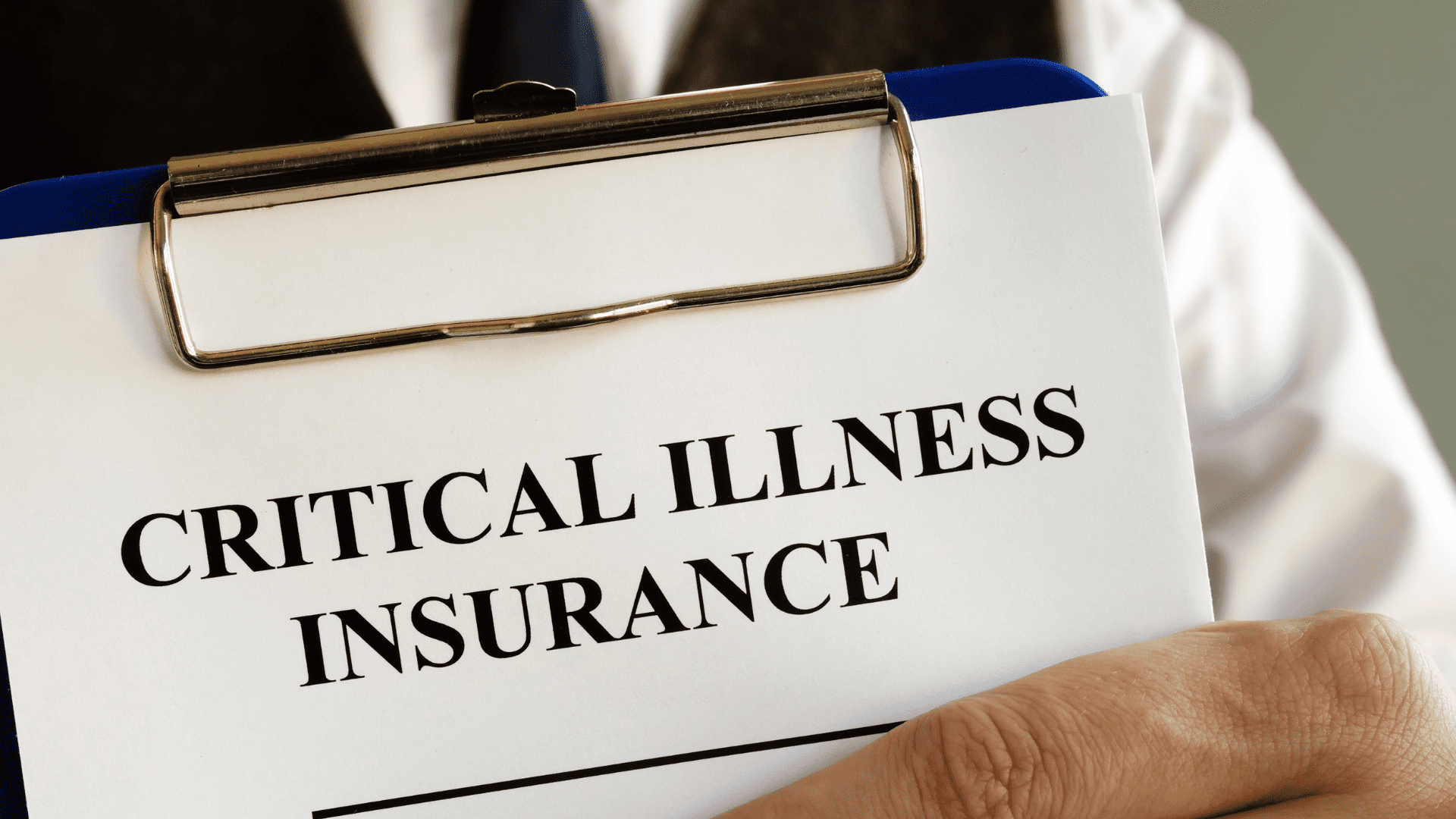Early Critical Illness (ECI) insurance plays a significant role in providing financial security in the face of health-related challenges in Singapore. It is a specialised insurance product designed to provide financial support when an individual is diagnosed with specific critical illnesses at an early stage.


Traditional Critical Illness Insurance VS Early Stage Critical Illness
Traditional critical illness insurance and early-stage critical illness plans are two types of insurance coverage that offer financial protection in the event of a critical illness diagnosis. While both provide valuable coverage, they differ in terms of the scope of coverage, the stage at which benefits are payable, and the financial assistance offered to policyholders.
Traditional critical illness insurance typically provides coverage for a wide range of severe illnesses and medical conditions at advanced stages. When a policyholder is diagnosed with a covered illness, they receive a lump-sum payout to help cover medical expenses, loss of income, and other related costs. This coverage is typically triggered by the diagnosis of a specified critical illness, such as cancer, heart attack, or stroke, at a severe stage.
On the other hand, early-stage critical illness plans focus on providing coverage for critical illnesses at their early stages, often before symptoms become severe or life-threatening. These plans offer financial protection when a policyholder is diagnosed with a covered illness at an early stage, allowing for early intervention and treatment. Benefits are typically payable upon the diagnosis of covered conditions, even if they have not progressed to a severe stage.
One key difference between traditional critical illness insurance and early-stage critical illness plans is the stage at which benefits are payable. Traditional plans typically require the illness to reach a severe stage before benefits are paid out, while early-stage plans offer coverage for illnesses diagnosed at their early stages, providing financial support when it’s most needed.
Additionally, early-stage critical illness plans may offer additional benefits such as partial payouts for less severe conditions, coverage for medical tests and screenings, and optional riders for added protection. These features are designed to provide policyholders with comprehensive coverage and support throughout their health journey.
In summary, while traditional critical illness insurance offers coverage for severe illnesses at advanced stages, early-stage critical illness plans provide coverage for critical illnesses diagnosed at their early stages, offering financial protection and support for early intervention and treatment. Both types of coverage have their benefits and considerations, and individuals should carefully evaluate their needs and priorities when choosing the right plan for their circumstances.
Key Features of Early-Stage Critical Illness Insurance
Unlike traditional critical illness insurance, which typically covers severe stages of illnesses, early-stage coverage focuses on the initial diagnosis, allowing policyholders to receive benefits at an earlier and potentially more treatable phase. Key features of Early Stage Critical Illness Insurance include:
1. Early Diagnosis Coverage
Early Diagnosis Coverage is a specialised insurance that comes into play immediately upon the early diagnosis of specified critical illnesses. While the covered illnesses may differ among insurance providers, they typically include conditions such as early-stage cancer, heart attack, and stroke. This type of coverage is designed to provide financial support precisely when it is needed most – at the initial detection of a critical illness.
By offering a financial cushion during the early stages of these illnesses, policyholders can access necessary funds for medical treatments, lifestyle adjustments, and other associated expenses, ensuring that they can focus on their health and recovery without the added stress of financial burdens.
2. Financial Assistance
Financial Assistance is a crucial aspect of insurance coverage for critical illnesses. In the event of a diagnosis, the policyholder becomes eligible to receive a lump sum payment or a predetermined benefit amount. This financial aid is specifically designed to alleviate the financial strain associated with critical illnesses, addressing various needs such as medical expenses, loss of income, and other related costs that may arise during the initial stages of treatment and recovery.
By providing a substantial sum upfront, this support ensures that the policyholder can access the necessary resources to navigate their health challenges without compromising their financial stability.
3. No Waiting Period
Unlike some traditional insurance policies, early-stage critical illness insurance often has no waiting period. Once diagnosed, the policyholder can promptly claim the benefits.
4. Flexible Use of Funds
One notable feature of early-stage critical illness insurance is the absence of a waiting period. Unlike certain traditional insurance policies that may impose waiting periods before benefits can be claimed, early-stage critical illness coverage allows policyholders to access benefits promptly upon diagnosis. This eliminates the delay in receiving financial support, ensuring that individuals facing critical illnesses can swiftly utilize the coverage to address their immediate needs, such as medical expenses and other associated costs. The absence of a waiting period enhances the effectiveness of early-stage critical illness insurance in providing timely assistance during challenging times.
5. Survivor Benefits
In addition to covering early-stage critical illnesses, certain insurance policies go a step further by offering survivor benefits. This unique feature ensures that policyholders receive a payout even if the diagnosed critical illness is detected in its early stages and is successfully treated. Survivor benefits recognize the potential long-term financial impact that a critical illness can have on an individual’s life, even after recovering from the health challenge. By extending support beyond the treatment phase, these policies aim to provide ongoing financial assistance, helping policyholders navigate the aftermath of a critical illness and maintain financial stability during the recovery period.
6. Premiums and Coverage
When it comes to early-stage critical illness insurance, there is a notable distinction in both premiums and coverage. Premiums for this type of insurance are typically lower than those for traditional critical illness coverage. The reason for this lies in the specialized focus on specific, often less advanced, stages of illnesses. While traditional policies encompass a broader range of critical conditions, early-stage coverage is designed to address the immediate financial challenges associated with diagnoses in their initial phases. This targeted approach allows individuals to secure essential coverage for early-stage critical illnesses without the burden of higher premiums typically associated with comprehensive critical illness policies.


7. Peace of Mind
Opting for early-stage critical illness insurance goes beyond financial protection; it provides a profound sense of peace of mind. The assurance that financial support is readily available during a critical time offers policyholders the freedom to concentrate on their health and recovery without the added stress of potential financial strain. This peace of mind becomes an invaluable asset, allowing individuals to navigate their medical journey with a heightened focus on well-being, resilience, and the journey toward recovery. In the face of uncertainty, having this safety net brings a comforting layer of security, reinforcing the policyholder’s ability to confront health challenges with greater resilience and a clearer path to recovery.
It’s crucial for individuals considering early-stage critical illness insurance to thoroughly understand the terms, coverage details, and exclusions of the policy. Consulting with insurance professionals and carefully reviewing policy documents can help individuals make informed decisions based on their health needs and financial circumstances.
Early Stage Critical Illness Insurance Plans
Several Early Stage Critical Illness insurance plans are popular among Singaporeans seeking comprehensive coverage. These plans offer various benefits and features tailored to meet the diverse needs of individuals and families facing potential health challenges.
AIA Absolute Critical Cover from AIA stands out for its robust protection against critical illnesses at an early stage. With this plan, policyholders can rest assured knowing they have financial support available when it’s most needed, helping to alleviate the stress of medical expenses during difficult times.
Prudential PRUEarly Stage Crisis Cover is another notable option known for offering peace of mind by covering a wide range of critical illnesses from the early stages onwards. This comprehensive coverage ensures that policyholders have access to necessary medical treatments and support services without facing financial strain.
FWD Early Critical Protect is designed to ensure policyholders receive timely financial assistance for medical treatments and expenses associated with critical illnesses. This plan provides essential coverage, helping individuals and families navigate the challenges of critical illness diagnosis and recovery with greater ease.
Meanwhile, Manulife Smart Critical Advantage offers comprehensive coverage to help policyholders cope with the financial burden of medical treatments and recovery. With this plan, individuals can focus on their health and well-being without worrying about the financial implications of critical illness.
Lastly, AXA Early Critical Illness Enhanced stands out for providing enhanced coverage for critical illnesses, offering financial support from the early stages of diagnosis. This plan offers peace of mind and security, ensuring that policyholders have access to necessary resources to manage their health effectively.
Overall, these Early Stage Critical Illness insurance plans offer valuable protection and support, allowing individuals and families to face health challenges with confidence and peace of mind.
Addressing common questions about Early Stage Critical Illness insurance
Question 1: Is Early Critical Illness useful if I have a family history of cancer?
Family history should not be the sole determinant for opting for Early Critical Illness coverage. Regardless of family history, Critical Illness (CI) coverage, whether for early or advanced stages, serves as income replacement during illness. It ensures that individuals can recover with peace of mind, knowing their expenses and liabilities are covered. The coverage needed depends on the severity of the illness, typically ranging from 1-2 years of annual income for early CI and 3-5 years for advanced CI. Early Critical Illness coverage may be costly, so it’s advisable to prioritize advanced stage CI coverage first and consider Early Critical Illness when financial circumstances allow.
Question 2: As a 45-year-old, early critical illness plans are expensive. How important is it to buy these plans?
Early Critical Illness plans are considered a second priority, especially for middle-aged clients due to their cost. They are recommended if your budget permits. Priority should be given to critical illness coverage for more severe stages, like stage 3 or stage 4 cancer, when it becomes invasive. In such cases, the body may become too weak to work, requiring time off for recuperation. Critical illness insurance provides a lump sum payout to replace lost income, ensuring financial stability. Early Critical Illness coverage is more comprehensive, covering all stages of critical illness. While having early coverage for Early Critical Illness is beneficial, it should be balanced with sustainable premiums within your financial means.
Question 3: What should I look out for in an Early Critical Illness plan?
When considering an Early Critical Illness plan, it’s crucial to examine the coverage options. Some insurers may offer more or fewer types of Early Critical Illness coverage. It’s essential to review the available coverage options and choose the one that best suits your needs. Early Critical Illness plans come in two types: single-pay and multi-pay. Multi-pay Early Critical Illness plans enable multiple claims depending on the severity of critical illnesses, including recurring ones. Single-pay Early Critical Illness plans pay out only once, and the policy terminates after a successful claim.
Question 4: Why Choose to get Early Critical Illness Plan?
Early-stage CI insurance serves a different purpose, particularly when it comes to the type of illness and its impact. It allows you to make claims at the early stages of severity. For example, if you are diagnosed with stage 1 cancer, you can initiate claims through an Early CI insurance plan. Early treatment is crucial for survival, and having this coverage ensures you can access treatment without financial concerns.
Consider a scenario where you are diagnosed with early-stage critical illness. While the diagnosis may not render you completely incapable of working in your current occupation, you might desire the option to take unpaid leave or accept a pay cut to work in a less physically demanding role.
Another reason to opt for early-stage critical illness coverage is psychological. It provides the peace of mind that, although your condition may worsen, life is more than just work. You might want to spend more time with loved ones, especially when time is of the essence.
In these situations, a lump-sum payout gives you the confidence to make decisions about leaving your job and seeking proper treatment and rehabilitation to ensure your overall well-being, both mentally and physically.
Question 5: Is getting Health Insurance good enough?
Critical illness insurance offers a lump-sum payout, regardless of the treatment cost. This lump sum provides you with the freedom to use the money as you see fit. The critical illness insurance plan empowers you in multiple ways. You can choose to replace your income if you are unable to work due to your illness, or you may opt not to work, prioritizing your recovery.


Moreover, critical illness insurance serves as a form of continuous risk management. In situations where your health insurance plan reaches its coverage limit, the lump-sum payout from the critical illness insurance plan ensures that you have additional financial support to address your evolving healthcare needs.
Early Critical Illness insurance serves as a crucial component of your financial security. It provides peace of mind and financial stability in the face of health-related challenges. It’s important to make an informed decision, considering your budget, family history, and specific needs when choosing an Early Critical Illness plan. By understanding the options and prioritizing coverage that aligns with your financial means, you can ensure that you and your loved ones are well-protected in times of need.






